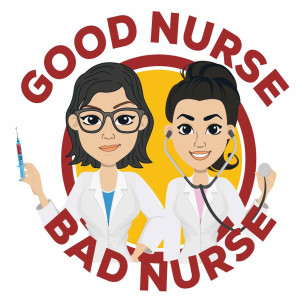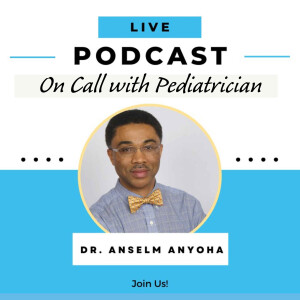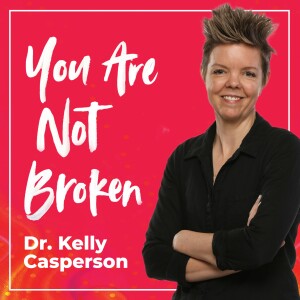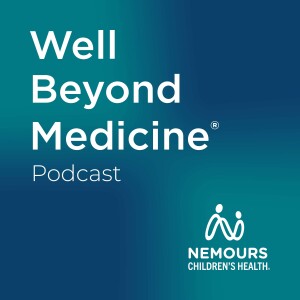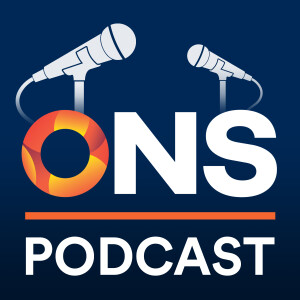

Episode List

Episode 375: Pharmacology 101: VEGF Inhibitors
“We’re really using these in many, many types of malignancies. But you can see this class of drug, these monoclonal antibodies, the small molecule inhibitors, being used in colorectal cancer, ovarian cancer, renal cell carcinoma, brain cancers, hepatocellular, non-small cell lung cancer, gynecologic malignancies, so lots of different types of cancers where we’re seeing these drugs used,” Danielle Roman, PharmD, BCOP, manager of clinical pharmacy services at the Allegheny Health Network Cancer Institute in Pittsburgh, PA, told Jaime Weimer, MSN, RN, AGCNS-BS, AOCNS®, manager of oncology nursing practice at ONS, during a conversation about the vascular endothelial growth factor (VEGF) inhibitor drug class. Music Credit: “Fireflies and Stardust” by Kevin MacLeod Licensed under Creative Commons by Attribution 3.0 Earn 0.5 contact hours of nursing continuing professional development (NCPD) by listening to the full recording and completing an evaluation at courses.ons.org by August 8, 2026. The planners and faculty for this episode have no relevant financial relationships with ineligible companies to disclose. ONS is accredited as a provider of nursing continuing professional development by the American Nurses Credentialing Center’s Commission on Accreditation. Learning outcome: Learner will report an increase in knowledge related to the use of VEGF inhibitors in the treatment of cancer. Episode Notes Complete this evaluation for free NCPD. ONS Podcast™ episodes: Pharmacology 101 series Episode 303: Cancer Symptom Management Basics: Ocular Toxicities Episode 244: Cancer Symptom Management Basics: Cardiovascular Complications Episode 196: Oncologic Emergencies 101: Bleeding and Thrombosis Episode 161: Administer Bevacizumab Infusions With Confidence ONS Voice articles: Manage Afatinib’s Adverse Events to Keep Patients on Treatment Oncology Drug Reference Sheet: Cabozantinib Oncology Drug Reference Sheet: Fruquintinib Patient Education Needs With Pazopanib Therapy for Soft Tissue Sarcoma ONS books: Chemotherapy and Immunotherapy Guidelines and Recommendations for Practice (second edition) Clinical Guide to Antineoplastic Therapy: A Chemotherapy Handbook (fourth edition) Safe Handling of Hazardous Drugs (fourth edition) ONS courses: Safe Handling Basics Clinical Journal of Oncology Nursing article: Safety and Adverse Event Management of VEGFR-TKIs in Patients With Metastatic Renal Cell Carcinoma Oral Anticancer Medication Care Compass: Resources for Interprofessional Navigation ONS Oral Anticancer Medication Learning Library ONS Oral Anticancer Medication Toolkit IV Cancer Treatment Education Sheets Oral Chemotherapy Education Sheets To discuss the information in this episode with other oncology nurses, visit the ONS Communities. To find resources for creating an ONS Podcast club in your chapter or nursing community, visit the ONS Podcast Library. To provide feedback or otherwise reach ONS about the podcast, email pubONSVoice@ons.org. Highlights From This Episode “Cancer cells are known to secrete factors that cause the formation of new blood vessels, and tumors need blood vessels to supply themselves with nutrients so that they can grow and metastasize. A lot of tumors overexpress these factors, so they had more of this ability to create new blood vessels. You may hear that term somewhere neo vascularization. … And also these factors can increase the permeability of blood vessels, so making them kind of leaky blood vessels. … So the thought behind it is being able to block the ability for this new blood vessel formation and to decrease that leakiness or permeability of those blood vessels.” TS 2:07 “These are drugs that are tyrosine kinase inhibitors. These are oral, small molecule drugs that are acting intracellular, so they are working within the cell to bind and prevent that downstream signaling of producing more blood vessels. So we have a number of small molecule drugs that fall into this class. Many of them target multiple types of receptors, VEGF being included, but also a lot of these drugs have other targets.” TS 7:58 “I would really say, number one, something that we very commonly see with this drug class is hypertension. Giving you an example of bevacizumab—If we look at any grade hypertension, this can be up to 67% of patients, so very common toxicity really spanning all of these agents. So something that we need to be monitoring closely for.” TS 13:24 “With that impaired wound healing, keeping that in mind, as we are planning for this agent, for patients and even sometimes with the minor surgical procedures, maybe a need for a short hold, and even for something like a catheter placement. I know and some of the providers I work with have a preference for holding for a short period of time around that as well.” TS 20:15 “I think one big area, and we’ve seen some of this just recently, and particularly in the hepatocellular setting, we’re seeing combinations of using the VEGF inhibitor class with immunotherapy. And so I think we’re going to continue to see that evolve. Even hearing about some bispecific antibodies that are in development, where they are targeting VEGF as well as PD-L1, so getting the immunotherapy and VEGF effects.” TS 24:44

Episode 374: Colorectal Cancer Treatment Considerations for Nurses
“Colorectal cancer treatment is not just about eliminating a disease. It’s about preserving life quality and empowering patients through every phase. So I think nurses are really at the forefront that we can do that in the oncology nursing space. So from early detection to survivorship, the journey is deeply personal. Precision medicine, compassionate care, and informed decision-making are reshaping outcomes. Treatment’s just not about protocols. It’s about people,” ONS member Kris Mathey, DNP, APRN-CNP, AOCNP®, gastrointestinal medical oncology nurse practitioner at The James Cancer Hospital of The Ohio State University Wexner Medical Center in Columbus, told Jaime Weimer, MSN, RN, AGCNS-BS, AOCNS®, manager of oncology nursing practice at ONS, during a conversation about colorectal cancer treatment. Music Credit: “Fireflies and Stardust” by Kevin MacLeod Licensed under Creative Commons by Attribution 3.0 Earn 1.0 contact hour of nursing continuing professional development (NCPD) by listening to the full recording and completing an evaluation at courses.ons.org by August 1, 2026. The planners and faculty for this episode have no relevant financial relationships with ineligible companies to disclose. ONS is accredited as a provider of nursing continuing professional development by the American Nurses Credentialing Center’s Commission on Accreditation. Learning outcome: Learner will report an increase in knowledge related to the treatment of colorectal cancer. Episode Notes Complete this evaluation for free NCPD. ONS Podcast™ episodes: Episode 370: Colorectal Cancer Screening, Early Detection, and Disparities Episode 153: Metastatic Colorectal Cancer Has More Treatment Options Than Ever Before ONS Voice articles: Colorectal Cancer Prevention, Screening, Treatment, and Survivorship Recommendations Genetic Disorder Reference Sheet: Lynch Syndrome (Hereditary Nonpolyposis Colorectal Cancer) How Liquid Biopsies Are Used in Cancer Treatment Selection Oncology Drug Reference Sheet: 5-Fluorouracil Oncology Drug Reference Sheet: Oxaliplatin What Is a Liquid Biopsy? Clinical Journal of Oncology Nursing article: Colorectal Cancer in Young Adults: Considerations for Oncology Nurses Oncology Nursing Forum article: Neurotoxic Side Effects Early in the Oxaliplatin Treatment Period in Patients With Colorectal Cancer ONS Colorectal Cancer Learning Library ONS Biomarker Database (filtered by colorectal cancer) ONS Peripheral Neuropathy Symptom Interventions American Cancer Society colorectal cancer resources CancerCare Colorectal Cancer Alliance Colorectal Cancer Resource and Action Network Fight Colorectal Cancer National Comprehensive Cancer Network To discuss the information in this episode with other oncology nurses, visit the ONS Communities. To find resources for creating an ONS Podcast club in your chapter or nursing community, visit the ONS Podcast Library. To provide feedback or otherwise reach ONS about the podcast, email pubONSVoice@ons.org. Highlights From This Episode “Colorectal cancer has several different types, but there is one that dominates the landscape, and that is adenocarcinoma. So I think most of us have heard that. It’s fairly common, and it accounts for about 95% of all colorectal cancers. It begins in the glandular cells lining the colon or rectum and often develops from polyps, in particular adenomatous polyps.” TS 1:41 “One of the biomarkers that we’ll most commonly hear about is KRAS or NRAS mutations. This indicates tumor genetics, and these mutations suggest resistance to our EGFR inhibitors such as cetuximab. BRAF mutation or V600E is a more aggressive tumor subtype, and those may respond to our BRAF targeted therapy. … And then our MSI-high or MMR-deficient—microsatellite instability or mismatch repair deficiency—that really predicts an immunotherapy response and may indicate Lynch syndrome, which is a huge genetic component that takes a whole other level of counseling and genetic testing with our patients as well.” TS 6:02 “Polypectomy or a local excision—that removes our small tumors or polyps during that colonoscopy. And that’s what’s used for those stage 0 or early stage I cancers. A colectomy removes part or all of the colon. This may be open or laparoscopic. It can include a hemicolectomy, a segmental resection, or a total colectomy, so where you take out the entire part of the colon. A proctectomy removes part or all of the rectum. This may include a low anterior resection, also known as an LAR … or an abdominal perineal resection, which is an APR. … Colostomy or ileostomy—that diverts the stool to an external bag via stoma. Sometimes this is temporary or permanent depending on the type of surgery.” TS 14:11 “We’ll have our patients say, ‘Hey, I want immunotherapy therapy. I see commercials on it that it works so well.’ We have to make sure that these patients are good candidates for it, also that we’re treating them adequately. We need to make sure that they have those biomarkers, so as I mentioned, the MSI-high or MMR tumors. Our MSS-stable tumors—they may benefit from newer combinations or clinical trials. Metastatic disease—immunotherapy may be used alone or with other treatments. And then in the neoadjuvant setting, some trials are really showing promising results using immunotherapy prior to surgery.” TS 25:38 “Antibody-drug conjugates are really an exciting frontier in all cancer treatments as well as colorectal cancer treatment. This is used mainly for patients with advanced or treatment-resistant disease, and these therapies combine the targeted power of monoclonal antibodies with the cell-killing ability of potent chemotherapy agents. They’re still on the horizon for the most part in colorectal cancer. However, there is only one approved antibody-drug conjugate, or ADC, at this time, and that’s trastuzumab deruxtecan, or Enhertu. That’s approved for any solid tumor, such as colorectal cancer with HER2 IHC 3+. So again, looking back at that pathology in those markers, making sure that you have that HER2 mutation and that IHC.” TS 35:00 “There are a few myths going around about colorectal cancer treatment that can lead to confusion or even delayed care. One myth is only older men get colorectal cancer. As you heard me talk in my previous podcast on screening, unfortunately, this isn’t necessarily true. Colorectal cancer affects both men and women and our cases in the younger population are rising. So our screening guidelines have changed to age 45 because we are seeing it in the younger population.” TS 45:54

Episode 373: Biomarker Testing in Prostate Cancer
“Next-generation sequencing, or NGS, can be used to help us determine if the patient has specific biomarkers we can identify and use to target for treatment. Certain findings can tell us if a particular treatment might work for that patient, and we can see if there are any genetic variants we might have a biomarker targeted agent to use to treat them with,” ONS member Jackie Peterson, MSN, RN, OCN®, NE-BC, MBA, ambulatory nurse manager at the University of Chicago Medical Center in Illinois, told Lenise Taylor, MN, RN, AOCNS®, BMTCN®, oncology clinical specialist at ONS, during a conversation about prostate cancer and biomarker testing. This podcast is sponsored by AstraZeneca and is not eligible for NCPD contact hours. ONS is solely responsible for the criteria, objectives, content, quality, and scientific integrity of its programs and publications. Music Credit: “Fireflies and Stardust” by Kevin MacLeod Licensed under Creative Commons by Attribution 3.0 Episode Notes This episode is not eligible for NCPD. ONS Podcast™ episodes: Episode 324: Pharmacology 101: LHRH Antagonists and Agonists Episode 321: Pharmacology 101: CYP17 Inhibitors Episode 180: Learn How Nurse Practitioners Use Biomarker Testing in Cancer Care ONS Voice articles: An Oncology Nurse's Guide to Cascade Testing Genetic Disorder Reference Sheet: BRCA1 and BRCA2 Hereditary Disorders Genetic Disorder Reference Sheet: Lynch Syndrome (Hereditary Nonpolyposis Colorectal Cancer) Germline and Somatic Variants: What Is the Difference? Help Patients Understand Genomic Variants of Unknown Significance Prostate Cancer Clinical Trials Don't Reflect Racial Diversity—And It's Getting Worse Over Time Prostate Cancer Disparities Disappear With Equal Access to Care Prostate Cancer Prevention, Screening, Treatment, and Survivorship Recommendations The Case of the Genomics-Guided Care for Prostate Cancer ONS book: Understanding Genomic and Hereditary Cancer Risk: A Handbook for Oncology Nurses ONS course: Genomic Foundations for Precision Oncology Clinical Journal of Oncology Nursing articles: Metastatic Prostate Cancer: An Update on Treatments and a Review of Patient Symptom Management Prostate Cancer: How Nurse Practicioners Can Aid in Disease Diagnosis and Management Oncology Nursing Forum article: Identification of Symptom Profiles in Prostate Cancer Survivors Other ONS Resources: Biomarker Database (refine by prostate cancer or specific biomarkers) Clinical tool/case study: Biomarker Testing in Prostate Cancer: The Role of the Oncology Nurse Genomics and Precision Oncology Learning Library Huddle Card: Genomic Biomarkers Infographic: Talking to Your Patient About a Germline Variant of Uncertain Significance (VUS) American Cancer Society - Genetic Testing and Counseling for Prostate Cancer Risk American Cancer Society - Prostate Cancer Clinicaltrials.gov National Cancer Institute - Prostate Cancer National Comprehensive Cancer Network ZERO Prostate Cancer To discuss the information in this episode with other oncology nurses, visit the ONS Communities. To find resources for creating an ONS Podcast club in your chapter or nursing community, visit the ONS Podcast Library. To provide feedback or otherwise reach ONS about the podcast, email pubONSVoice@ons.org. Highlights From This Episode “Some of the risk factors for developing prostate cancer include age, race, family history, and certain genetic changes or variants. Prostate cancer has some hereditary components, but most prostate cancer occurs in men without any significant family history of it.” TS 1:31 “Key biomarkers include PSA and prostate cancer gene 3, which is PCA3, and prostate-specific membrane antigen, or PSMA. Other biomarkers that are important for us to test include BRCA1, BRCA2, and Lynch syndrome–associated genes, which are MLH1, MSH2, MSH6, PMS2, and EPCAM. Biomarkers can be collected via your blood, urine, saliva, or tissue samples, so these are different ways that we can test and look for biomarkers in our patients.” TS 3:24 “It does matter how advanced the disease is. Usually, for our castrate-sensitive patients, they respond better to androgen deprivation therapy because that really is slowing down the growth of the cancer by reducing the available testosterone that the cancer needs to grow. Whereas our patients that are more advanced and have castrate-resistant prostate cancer, that cancer will continue to grow despite having the lowered testosterone levels, so they might need additional layers of treatment to really get their cancer under control.” TS 7:50 “When I talk to [patients] about biomarker testing, I tell them it’s another tool in our toolbox that we can use to help us determine if they might benefit from other therapy options now or in the future. I tell them that sometimes we’ll get a report back with a variant of unknown significance, and basically that means that we don’t really know whether or not this has an impact on their health or risk factors for the disease. That can sometimes be a little bit of a concern for these patients, so we just have to reassure them that we’re continually doing research around biomarker testing. The science is always advancing, so if there’s something that [researchers] find in the future, we’ll make them aware of that.” TS 9:08 “One of the biggest topics I think about is the inequity that exists in biomarker testing and research, especially surrounding the African American population. When these tests were developed, that population really wasn’t studied as much, so there’s not a lot of good data yet to make a decision or impact on those patients and that population.” TS: 12:30

Episode 372: Pharmacology 101: Proteasome Inhibitors
“The proteasome itself, it really helps us unfold or get rid of misfolded proteins or degradations of different cells. We used to have garbage disposals in our sinks, and we used to put food product in there. If your garbage disposal is clogged, then everything backs up. So that’s kind of what’s really going on in the cell itself, is that I’m building up these unnecessary proteins that we should be getting rid of, and it actually causes apoptosis or cell death,” ONS member Daniel Verina, DNP, RN, ACNP-BC, nurse practitioner for the multiple myeloma program at Mount Sinai Medical Center in New York, NY, told Lenise Taylor, MN, RN, AOCNS®, BMTCN®, oncology clinical specialist at ONS, during a conversation about the proteasome inhibitor drug class. Music Credit: “Fireflies and Stardust” by Kevin MacLeod Licensed under Creative Commons by Attribution 3.0 Earn 0.75 contact hours (including 40 minutes of pharmacotherapeutic content) of nursing continuing professional development (NCPD) by listening to the full recording and completing an evaluation at courses.ons.org by July 18, 2026. The planners and faculty for this episode have no relevant financial relationships with ineligible companies to disclose. ONS is accredited as a provider of nursing continuing professional development by the American Nurses Credentialing Center’s Commission on Accreditation. Learning outcome: Learner will report an increase in knowledge related to the use of proteasome inhibitors in the treatment of cancer. Episode Notes Complete this evaluation for free NCPD. ONS Podcast™ Pharmacology 101 series ONS Voice article: AI Multiple Myeloma Model Predicts Individual Risk, Outcomes, and Genomic Implications ONS books: Chemotherapy and Immunotherapy Guidelines and Recommendations for Practice (second edition) Clinical Guide to Antineoplastic Therapy: A Chemotherapy Handbook (fourth edition) Guide to Cancer Immunotherapy (second edition) Multiple Myeloma: A Textbook for Nurses (third edition) Clinical Journal of Oncology Nursing article: Optimizing Transitions of Care in Multiple Myeloma Immunotherapy: Nurse Roles Oncology Nursing Forum articles: Changes in Health-Related Quality of Life During Multiple Myeloma Treatment: A Qualitative Interview Study Facilitators of Multiple Myeloma Treatment: A Qualitative Study ONS Guidelines™ and Symptom Interventions Adherence to Oral Anticancer Medication Peripheral neuropathy ONS Hematology, Cellular Therapy, and Stem Cell Transplantation Learning Library American Society of Hematology International Myeloma Foundation Leukemia and Lymphoma Society Multiple Myeloma Research Foundation To discuss the information in this episode with other oncology nurses, visit the ONS Communities. To find resources for creating an ONS Podcast club in your chapter or nursing community, visit the ONS Podcast Library. To provide feedback or otherwise reach ONS about the podcast, email pubONSVoice@ons.org. Highlights From This Episode “When we look at the administration, we also want to make sure that we’re looking at the blood counts, right? Because proteasome inhibitors are well known for causing thrombocytopenia and neutropenia. So making sure that the patients do meet eligibility for the treatment for that day, and do they have anemia or lower red blood cell counts. You want to make sure that, because of these therapies, that the patient has no symptoms or infections going into each therapy for that day.” TS 10:19 “[Bortezomib], interesting enough, it can cause hypotension, cardiac failure, and sometimes pulmonary edema. Switching that up a little bit, what makes it slightly different, carfilzomib … a lot of times we saw, even in the clinical trial, that there was a lot of hypertension or cardiomyopathies, or arrythmias that we saw with carfilzomib and different dosages that they have indicated from the FDA. So again, monitoring the hypertension … or heart failure.” TS 15:16 “We also want to keep in mind another adverse effect, and especially in myeloma—our patients come in the door already immunocompromised just by the disease state alone. But now I’m giving them therapies that can drop their neutrophil count, so neutropenia and thrombocytopenia, so they are at a higher risk of having serious infections, even including like pneumonia or having outbreaks of herpes zoster or shingles.” TS 16:50 “If the patient has shortness of breath or symptoms, hold the therapy. I think that’s one of my biggest messages when it comes to cancer treatments and educating other healthcare providers, or even educating our patients and their caregivers or the care partners with them, is that we need to sometimes hold the therapy for safety.” TS 22:02 “I say keep a log, keep a book. Let me know when the symptoms happen. Are they happening the day of treatment? Are they happening two days later from the treatment? Are they happening a week later from the treatment? And being able to kind of guide which therapy is causing some of these adverse events or side effects alone. So, making them have calendars. When did you take the drug, when did you get your last infusion or your last [subcutaneous] injection? Always talk to your care team, whether it’s in the academic center or next to your house in the community.” TS 26:17 “It’s us learning how to listen to the patient going forward. We have tasks to do—we all have tasks to do in our lives—but we have to take a breath, be mindful who’s in front of us, listen to them first, and then be able to talk to them and care for them upfront and see what the symptoms are. I think that’s what we need to do. We have to take a breath in cancer.” TS 39:35

Episode 371: ONS 50th Anniversary: ONS’s Rich History of International Work Advances the Future of Global Oncology Nursing
“We want to make sure that nurses, have opportunities both in our local communities as well as international communities, to engage in courageous dialog with others who may think or look different than we do and whose culture or language may also be different. The difference is what brings us together and allows us to have more of this tapestry of what we are about—ensuring that we advance health for all and that we are able to move forward together,” ONS member Ashley Leak-Bryant, PhD, RN, OCN®, professor at University of North Carolina (UNC) at Chapel Hill, told Darcy Burbage, DNP, RN, AOCN®, CBCN®, chair of the ONS 50th Anniversary Committee, during a conversation about international collaboration in oncology nursing. Burbage spoke with Leak-Bryant, ONS member Kristin Ferguson, DNP, MBA, RN, OCN®, senior director of strategic operations, bone marrow transplant, and cellular therapies at MedStar Georgetown University Hospital, and ONS member and Chief Clinical Officer Erica Fischer-Cartlidge, DNP, RN, AOCNS®, EBP-C, about their experiences working in the global oncology space and how ONS is advancing those efforts. Music Credit: “Fireflies and Stardust” by Kevin MacLeod Licensed under Creative Commons by Attribution 3.0 Episode Notes ONS Podcast™ ONS 50th anniversary series ONS Voice articles: Bridging Borders and Advancing Oncology’s Global Mission Building Collaboration, Education With Oncology Nurses in Malawi Cancer Terms’ Negative Associations in African Languages Can Create Communication Barriers for Patients and Clinicians Latest Global Cancer Statistics Underscore the Stark Need to Address Resource-Based Disparities ONS Members Share Resources, Experiences With Philippine Colleagues Clinical Journal of Oncology Nursing articles: Amplifying the Global Impact of Oncology Nursing How Can a Global Experience Enkindle a Passion for Oncology Nursing? Connie Henke Yarbro Oncology Nursing History Center ONS Global Initiatives Joint position statement from ISNCC, MASCC, ONS, AONS, and EONS: Cancer Nursing’s Potential to Reduce the Growing Burden of Cancer Across the World Asian Oncology Nursing Society City Cancer Challenge Canadian Association of Nurses in Oncology European Oncology Nursing Society Global Power of Oncology Nursing Health Volunteers Overseas International Society of Nurses in Cancer Care Multinational Association of Supportive Care in Cancer UNC Project Malawi Union for International Cancer Control Email Ashley Leak-Bryant Email Kristin Ferguson Email Erica Fisher-Cartlidge at ONS Global Initiatives To discuss the information in this episode with other oncology nurses, visit the ONS Communities. To find resources for creating an ONS Podcast club in your chapter or nursing community, visit the ONS Podcast Library. To provide feedback or otherwise reach ONS about the podcast, email pubONSVoice@ons.org. Highlights From This Episode Leak-Bryant: “My first experience was when I was 21 years old. This was when I was in nursing school at UNC Greensboro. An opportunity came about where I had a chance to go to Honduras, and it was for a one-week service learning cultural immersion experience. And that really gave me my first entree into global health as well as global training. And so, as a first-generation college graduate who had never been out of North Carolina nor had ever flown, it was really an eye-opening experience that has led me now to my current role and passion for global health.” TS 3:24 Leak-Bryant: “In 2018, we had the Malawian delegation come to UNC Chapel Hill. University of North Carolina at Chapel Hill has one of the longest standing collaborations with Malawi, and we call it UNC Project Malawi, and it has been in existence for more than 30 years. … Those nurses and other allied health professionals came to UNC to our cancer center to see how we were making sure that we were engaged in best practices, then how they would be able to take that back to Malawi to make sure that they have what they need as they were opening up a new national cancer Center in Malawi.” TS 7:57 Ferguson: “I have volunteered with ONS at the Asian Pacific Breast Cancer Summit, which was in Indonesia in 2024, and then a few months ago in Singapore. And this is an exciting conference because it draws in nurses from the region, so you end up having five, six, maybe seven countries represented at these conferences, where oncology nurses are very eager to learn, meet one another. And so the teaching that we’ve provided there has been a combination of lectures and then roundtables where we’ve strategically placed nurses attending with nurses that are not at their same hospital so that they can connect and share experiences with myself and another ONS member and maybe some other local staff acting as moderators and facilitating conversations.” TS 18:04 Ferguson: “When I was in Tbilisi, Georgia, in 2019, the people there, most of them do not speak English, so they speak their native language Georgian. As I presented, I was wearing a headset, and all of the oncology nurses in the audience were wearing a headset, and I was live translated. What this means is when you’re speaking, a translator is sitting in a booth close by and you can actually very quietly hear in your ear he or she quietly translating what you’re saying into a language that the nurses can understand. It’s actually a bit funny because when you make a joke or ask a question, expecting nods or head shakes, it takes several seconds for the translation to occur. You can get used to a 10-second delay, and you have to pause your speaking and allow actually a little bit more time in presenting if translation services are required.” TS 22:25 Fischer-Cartlidge: “I think that the professional organization role is absolutely critical in how we advance global oncology. Certainly, providing education and helping empower nurses to be more autonomous and equal partners on the care team is a big piece of that. But it’s also through forming international partnerships and really elevating the collective voice of nurses in the specialty. This goes a long way in standardizing practices, promoted leadership development among oncology nurses, really across the world. We know that nurses are not seen the same country to country to country on the healthcare team. And so a big part of what we do is try to elevate the importance of what nurses bring to cancer care.” TS 36:14 Fischer-Cartlidge: “I have so many hopes. I hope more opportunities come up for us to raise awareness of this essential role and how we bring a greater spotlight to what nurses are doing across the world for patient care. I hope to see us have more collective global position statements in this space. I hope to see that we have more unified projects across nursing organizations across the world, where we then really can bring our resources and our members together to do great work more effectively and more efficiently. And I think the beginnings of that are happening right up to this point.” TS 41:17
Create Your Podcast In Minutes
- Full-featured podcast site
- Unlimited storage and bandwidth
- Comprehensive podcast stats
- Distribute to Apple Podcasts, Spotify, and more
- Make money with your podcast
